Missing Malaysia Airlines plane 'deliberately diverted'
- Published
Malaysia's Prime Minister: "These movements are consistent with the deliberate action of someone on the plane"
The communications systems of missing Malaysia Airlines flight MH370 were deliberately disabled, Malaysia's Prime Minister Najib Razak has said.
According to satellite and radar evidence, he said, the plane then changed course and could have continued flying for a further seven hours.
He said the "movements are consistent with the deliberate action of someone on the plane".
The plane disappeared a week ago with 239 people on board.
Mr Razak stopped short of saying it was a hijacking, saying only that they were investigating "all possibilities".
He said the plane could be anywhere from Kazakhstan to the Indian Ocean.
The developments have added further uncertainty to the relatives of the 239 people on board the Kuala Lumpur to Beijing flight.
Some in the Chinese capital said the news had made them more hopeful that their loved ones are alive, but one woman said they were on an emotional rollercoaster and she felt "helpless and frustrated".
'New phase'
The flight left Kuala Lumpur for Beijing at 00:40 local time (16:40 GMT) on 8 March and disappeared off air traffic controllers' screens at about 01:20.
Mr Razak told a news conference that new satellite evidence shows "with a high degree of certainty" that the one of the aircraft's communications systems - the Aircraft and Communications Addressing and Reporting System - was disabled just before it had reached the east coast of Malaysia.
ACARS is a service that allows computers aboard the plane to "talk" to computers on the ground, relaying in-flight information about the health of its systems.
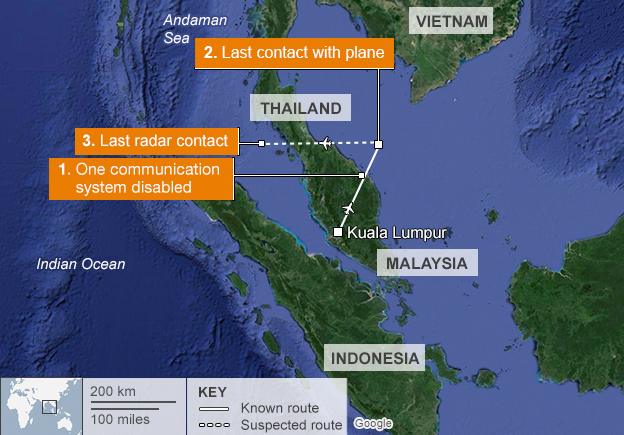
.jpg)
Shortly afterwards, near the cross-over point between Malaysian and Vietnamese air traffic controllers, the plane's transponder - which emits an identifying signal - was switched off, he said.
According to a military radar, the aircraft then turned and flew back over Malaysia before heading in a north-west direction.
A satellite was able to pick up a signal from the plane until 08:11 local time - more than seven hours after it lost radar contact - although it was unable to give a precise location, Mr Razak said.
He went on to say that based on this new data, investigators "have determined the plane's last communication with a satellite was in one of two possible corridors":
Peter Chong, friend of pilot Zaharie Ahmad Shah: "I wouldn't believe, unless proven otherwise, that he had anything directly to do with what's happening to MH370"
a northern corridor stretching from the border of Kazakhstan and Turkmenistan through to northern Thailand
a southern corridor stretching from Indonesia to the southern Indian Ocean
The BBC's Jonah Fisher in Kuala Lumpur says investigators will now focus on trying to obtain the radar data from any of the countries the Boeing 777 may have passed over.
This could include Thailand, Myanmar, Nepal, Bangladesh, Bhutan, China, India and Pakistan.
Mr Razak said that in light of the new evidence, the investigation had "entered a new phase" and would focus on the crew and passengers on board.
Shortly after the news conference finished, Malaysian police searched the Kuala Lumpur home of the plane's pilot, 53-year-old Zaharie Ahmad Shah.
Malaysia's prime minister confirmed much of what had been leaked to the media, from US agencies and satellite companies, in the last 48 hours.
His government had been facing severe criticism for not being more open about what it knows.
China - which had 153 citizens on board the flight - has urged Malaysia to continue providing it with "thorough and exact information" on the search, state news agency Xinhua said.
Passengers' relatives: "Please return our family members"
The foreign ministry said it was sending technical specialists to participate in the investigation, and appealed for the help of other countries and organisations.
Along with the Chinese passengers, there were 38 Malaysians and citizens of Iran, the US, Canada, Indonesia, Australia, India, France, New Zealand, Ukraine, Russia, Taiwan and the Netherlands on board.
An extensive search of the seas around Malaysia - involving 14 countries, 43 ships and 58 aircraft - since the plane disappeared had proved fruitless.
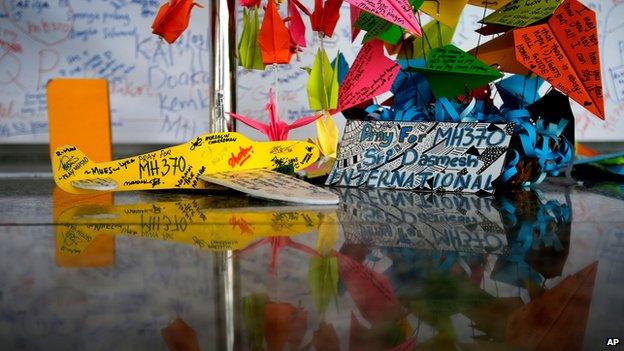
Messages of support for those aboard Malaysia Airlines Flight MH370 lie in the viewing gallery at Kuala Lumpur airport
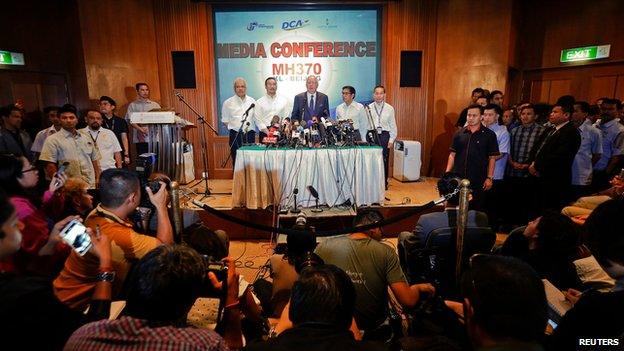
Malaysia's PM Najib Razak confirmed the plane's communications systems had been disabled and it may then have been flown elsewhere for some seven hours
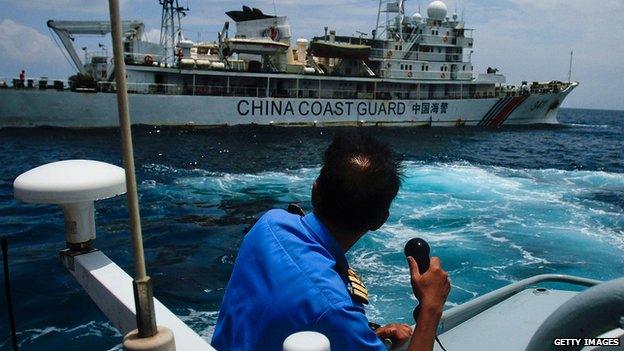
The sweep of the South China Sea has been called off, as the investigation "enters a new phase" and refocuses its search west over the Indian Ocean.
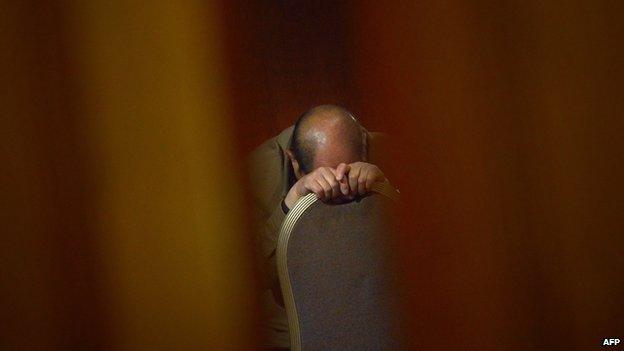
The agonising wait for news on the fate of their loved ones continues for the relatives of those on board on the airline.